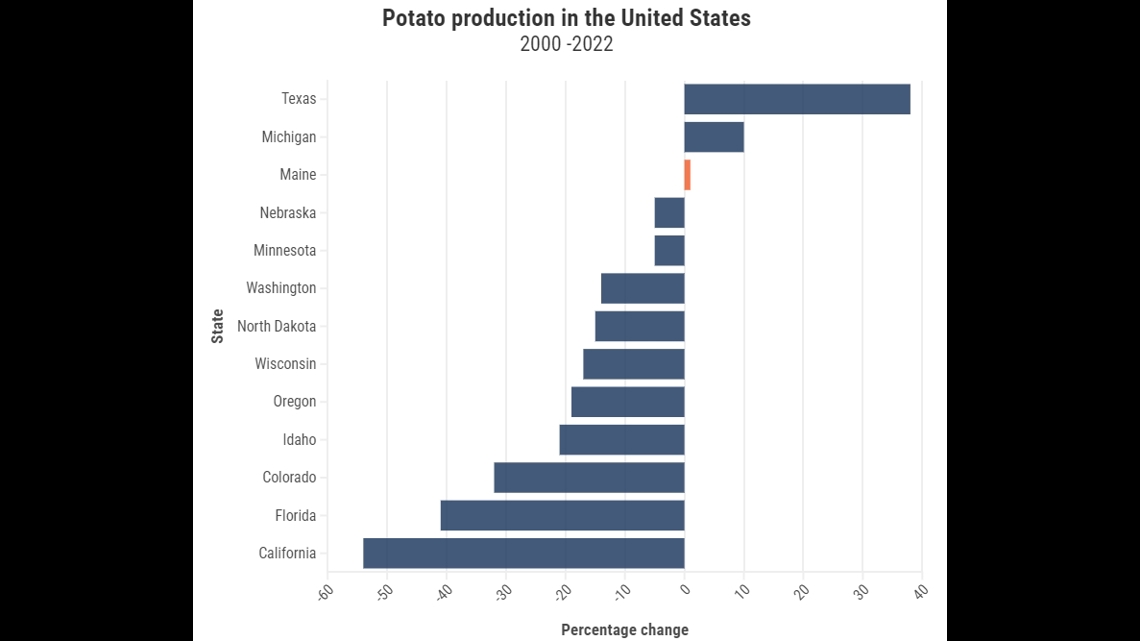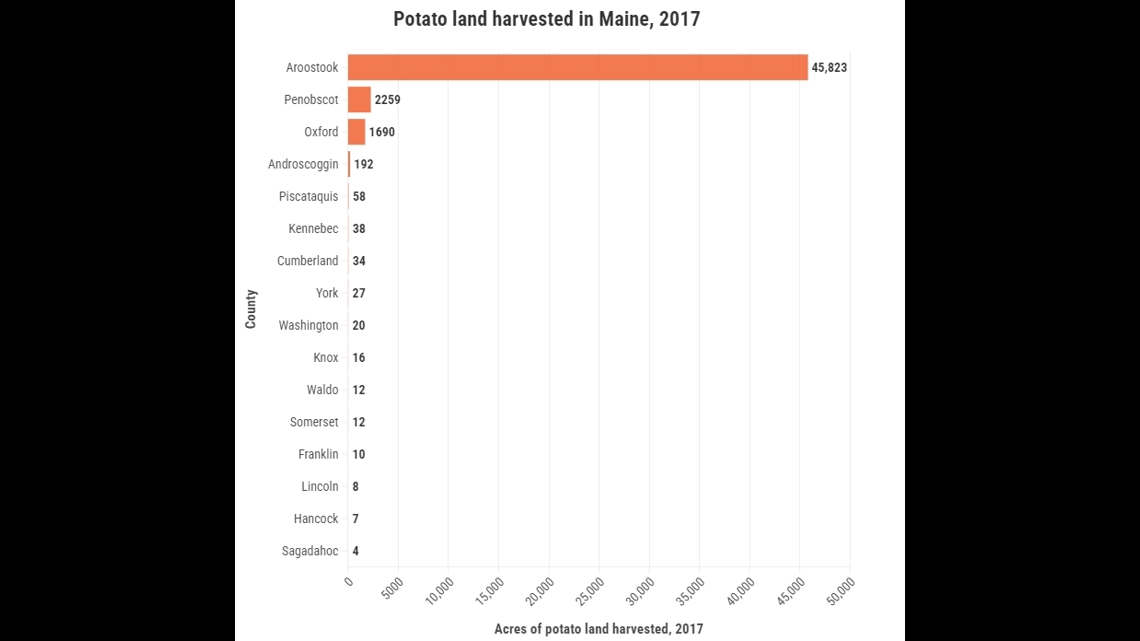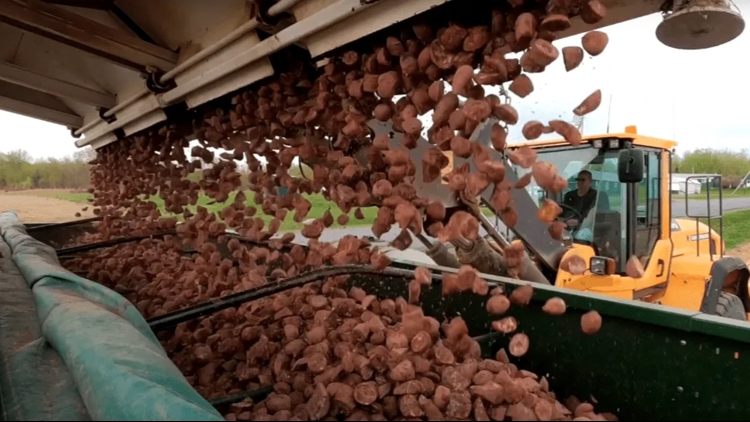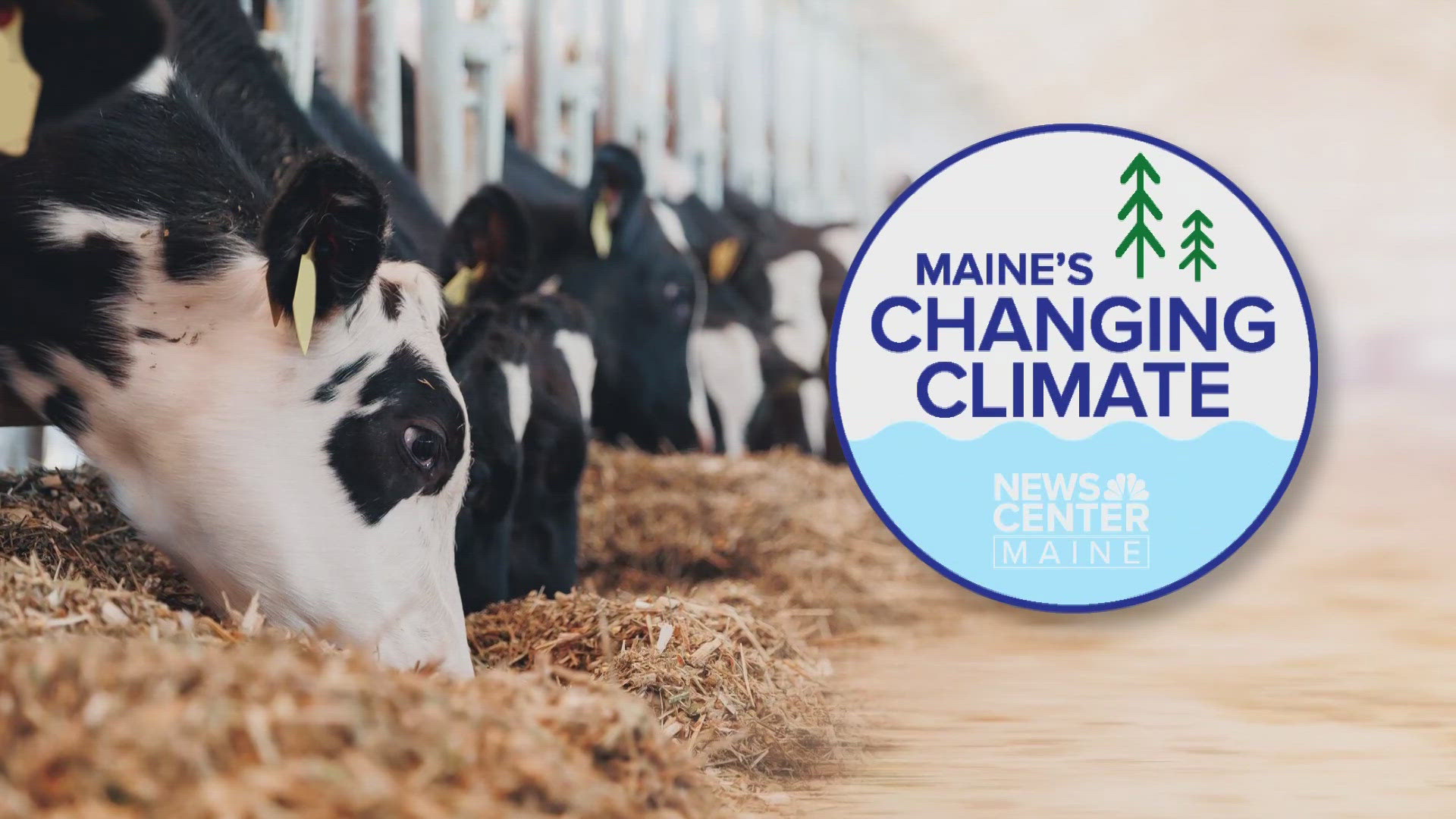MAINE, USA — “It’s been more than 100 years since herds of woodland caribou graced the state of Maine. At least we can still claim the potato.”
Thus opens the description in this year’s Fedco seed catalog of the Caribou Russet, an oblong, reddish-brown potato with white flesh that the Clinton-based gardening cooperative hails for the vegetable’s reported versatility in the kitchen (“great mashed, fried, or baked”), productivity in the fields and resistance to common diseases like hollow heart and verticillium wilt.
Just nine years after it was introduced, the Caribou Russet, developed by the University of Maine, has overtaken the state’s potato market, edging out breeds that dominated the market for over a century.
“It’s one of the most significant varieties in the last 20 years,” said Jim Gerritsen, former owner of Wood Prairie Farm in Bridgewater, which sells organic seed potatoes throughout the U.S. Caribou Russets account for about 10 percent of sales at Wood Prairie Farm, now owned by his son Caleb, said Gerritsen, who has grown potatoes for more than four decades.
Caribou Russets were the top seed potato variety planted in Maine in 2023, according to the industry publication Spudman.
“We love it,” Noah Winslow, head of marketing and quality assurance for Irving Farms, said of the Caribou Russet. “It checks off a lot of the stuff you are looking for in a potato” — high yields, relatively short growing season, and a versatility that appeals to processors and consumers.
Only about a quarter of potatoes grown nationwide are eaten fresh, according to Spudman. Roughly 23 percent are made into potato chips, and most of the others become french fries. Caribou Russet works for all of those, which makes it easy to market to processors and consumers, said Winslow.
The development of the Caribou Russet comes as Maine’s potato production has stayed largely flat over the past two decades, growing about 1 percent between 2000 and 2022. Maine was one of just three states that expanded potato production in that period, according to a paper released in March by the University of Maine.
Of the 13 potato-producing states tracked by the U.S. Department of Agriculture, Texas and Michigan saw the greatest increase, with production soaring 38 percent in Texas in that time. Michigan saw a 10 percent increase while California experienced the greatest decline, falling by more than half.
Maine is among the top 10 potato-producing states nationwide, losing its spot at the top to Idaho in the 1950s.


But the root vegetable still dominates the Maine agricultural landscape, particularly in Aroostook County, which ranked third of any county in the United States in 2022, the latest numbers available, for the number of harvested potatoes. More than 80 percent of the land devoted to vegetable crops in Maine is used for growing potatoes.
Caribou Russet, said Winslow, might help bring the state back to the top, or at least a bit closer.
“The costs are the same but if you get higher yields, that makes a big difference.”
It takes years to bring any agricultural product from test field to market, and potatoes are no exception, said Greg Porter, who led the University of Maine’s potato breeding program for decades and spent much of his time on the Caribou Russet before retiring in 2023. The program tests more than 250 varieties each year, starting with cross-pollination in an Orono greenhouse before moving to fields in Presque Isle.
“It’s very time-consuming to create a new potato variety,” said Porter, noting that 12 to 15 years can pass from the start of breeding until a new potato reaches commercial production. “It’s a lot about many people working together.”
Conditions associated with growing potatoes in a research situation are quite different from conditions on a commercial farm, and what works in test fields may not work at scale.
Porter recalled a variety named Easton, developed around the same time as Caribou Russet, that fell out of commercial production entirely despite having many desirable qualities — it had high yields and worked well in many ways for processors like McCains, which makes french fries. But it bruised and decayed in commercial warehouses when grown in large quantities.
“It’s a really challenging leap,” said Porter.


Roseanna LaCourse, of the Maine Potato Lady in Guilford, sees the demand for Caribou Russet as specialized.
“It’s more popular in Maine than outside of Maine,” said LaCourse, who has been selling potatoes for 25 years. While the demand for Caribou Russet is strong locally, other varieties, such as Norlands, sell better overall. LaCourse said that in the supermarkets, Caribou Russet is often presented differently — rather than just being labeled as a russet, this new variety is presented with its well-recognized, local name.
Some farmers briefly worried about the viability of the Caribou Russet this spring, when many growers said the potatoes were breaking down prematurely in storage. But the issue wasn’t specific to Caribou Russet, according to Winslow. “That was pretty widespread across the board.”
One potential disadvantage to Caribou Russet versus older russet varieties is the length of storage. Russet Burbank, a variety popular in Maine and New England since it was introduced in the 1880s, will often keep until the August after the year it was harvested, allowing farmers to market potatoes longer and sell when the price is best.
Caribou Russet, said Porter, stores well until about March of the year after it was harvested. While not particularly susceptible to decay, said Porter, it stops being a marketable potato in storage because it starts to sprout.
Barry Campbell, a longtime potato grower in Littleton, isn’t bothered by the shorter dormancy period. “As long as you know about that, it’s fine.”
This story was originally published by The Maine Monitor, a nonprofit and nonpartisan news organization. To get regular coverage from the Monitor, sign up for a free Monitor newsletter here.



